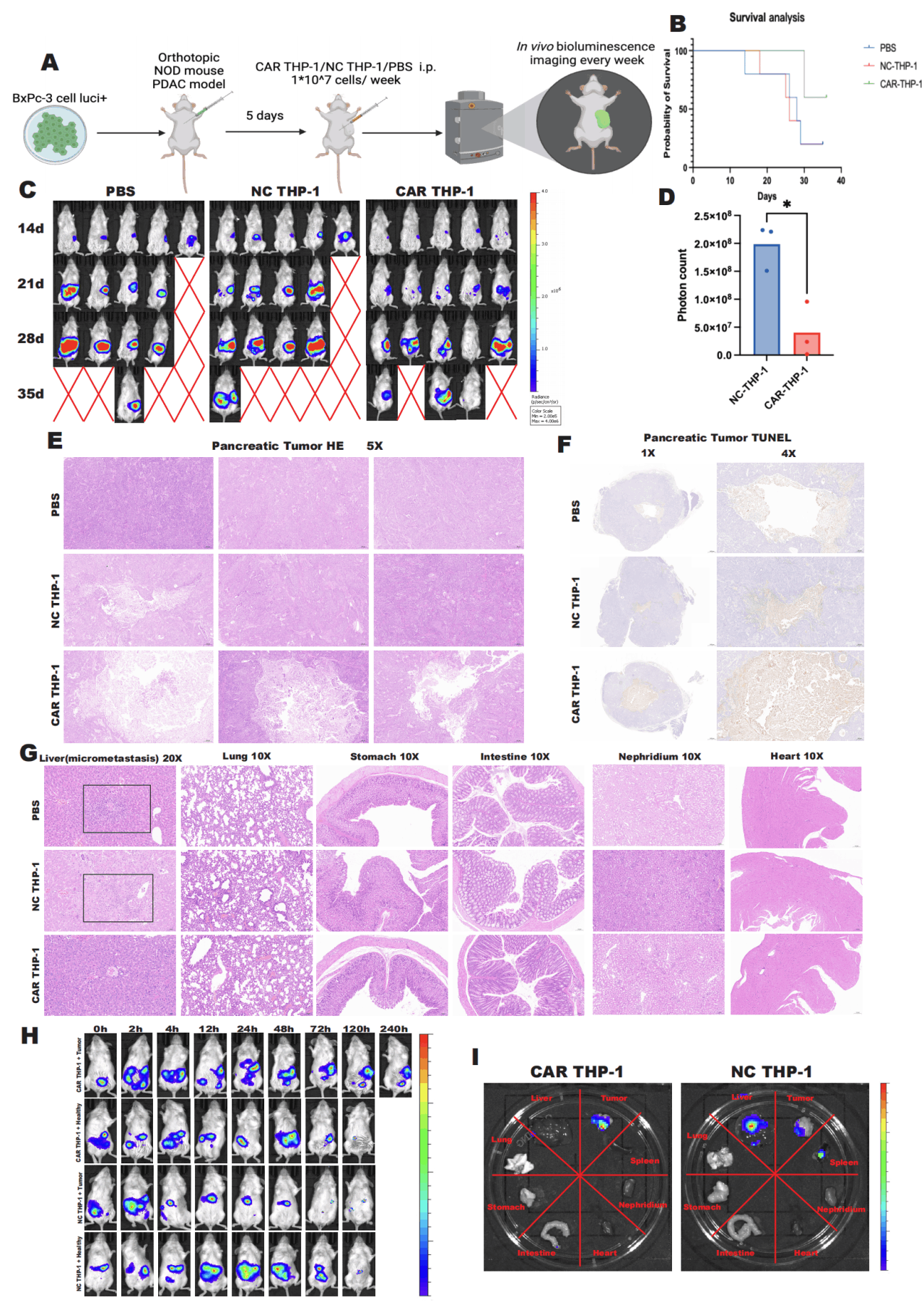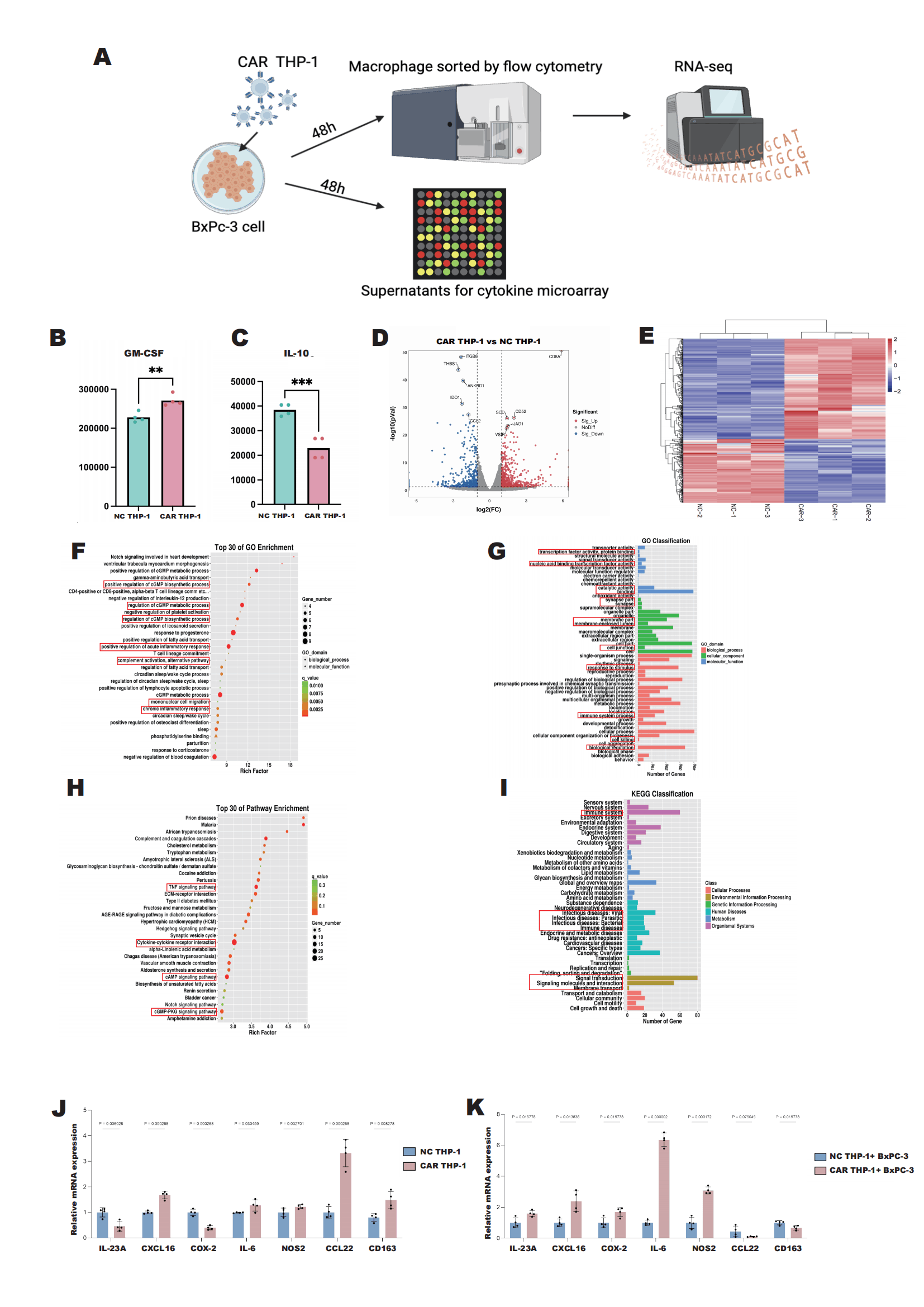
On December 6, Professor Yin Xiushan's team from RocRock Bio and the teams from Peking Union Medical College Hospital, led by Director Liu Qiaofei, Director Liao Quan, and Academician Zhao Yupu, published a research paper in "Molecular Cancer" titled "Chimeric antigen receptor macrophages targeting c-MET (CAR-M-c-MET) inhibit pancreatic cancer progression and improve cytotoxic chemotherapeutic efficacy." RocRock Bio is a co - corresponding unit. Professor Yin Xiushan, Director Liu Qiaofei, Director Liao Quan, and Academician Zhao Yupu are the co - corresponding authors. Zheng Huijin and Yang Xinzhe are the co - first authors. This study verifies the therapy's high anticancer efficacy and safety in vitro and in vivo, providing scientific evidence for future clinical trials. The researchers focused on applying c-MET - targeted CAR-M in pancreatic cancer treatment. They found c-MET is highly expressed in pancreatic cancer tissues, linked to shorter patient survival. They developed CAR-M-c-MET cells using the THP-1 cell line, which show strong specificity for pancreatic cancer cells, with better phagocytic and cytotoxic effects than normal macrophages. Also, CAR-M-c-MET cells combined with chemotherapy drugs show synergistic antitumor effects.

In order to test how well CAR-M cells work inside the body, scientists used a special kind of mice called NOD/SCID that had pancreatic cancer. They put CAR-M-c-MET cells into the mice's abdomens. These cells moved fast to the tumor place and stopped the tumor from getting worse. Also, the mice didn't have any bad reactions that people could see clearly throughout the whole test.

More analyses on cytokines and mRNA sequencing indicated that CAR-M-c-MET cells generated more immune - activation agents than control macrophages. This research provides robust evidence for the safety and efficacy of CAR-M cell therapy in treating pancreatic cancer. It shows CAR-M-c-MET can effectively inhibit pancreatic cancer development, enhance chemotherapy drug efficiency, and maintain good safety without significant side effects.

Conclusion: This study shows that CAR-M-c-MET cells are safe and effective for pancreatic cancer treatment in both laboratory and animal tests. They can stop pancreatic cancer from getting worse and make chemotherapy drugs work better, without harming the experimental mice much. Pancreatic cancer is the seventh most deadly cancer globally, with nearly the same number of new cases and deaths each year. It's usually detected late, with only less than 5% diagnosed early, and about 60% of patients already have metastasis when first seeing a doctor [1]. In 2020, there were almost half a million new cases and over 460,000 deaths worldwide, with a five-year survival rate between 9% and 11% [2], which is a big concern for public health. Data from the National Cancer Center of the Chinese Academy of Medical Sciences shows that in 2022, China had an estimated 134,374 new pancreatic cancer cases and 131,203 deaths, making it the eighth most common cancer and the sixth most deadly one [3]. Even with improvements in surgery and chemotherapy, the five-year survival rate is still very low, below 10% for all patients, and only around 40% to 45% for those with localized cancer and no lymph node spread. Also, the standard four-drug chemotherapy (Folfirinox) only works for about one-third of patients. So, there's a pressing need for new treatment approaches to improve the poor outcomes and treatment effectiveness.
[1] Owens DK, Davidson KW, Krist AH, et al. Screening for Pancreatic Cancer: US Preventive Services Task Force Reaffirmation Recommendation Statement. Jama. 2019; 322: 438-444. doi: 10.1001/jama.2019.10232
[2] Siegel RL, Miller KD, Fuchs HE, et al. Cancer statistics, 2022. CA Cancer Clin. 2022; 72: 7-33. doi: 10.3322/caac.21708
[3] Xia C, Dong X, Li H, et al. Cancer statistics in China and United States, 2022: profiles, trends, and determinants. Chin Med J (Engl). 2022; 135: 584-590. doi: 10.1097/cm9.0000000000002108
AI Website Generator